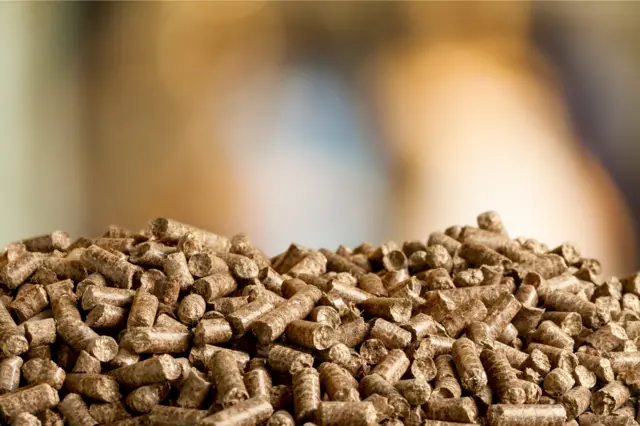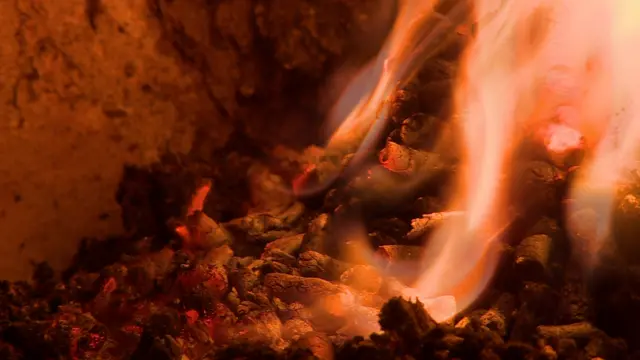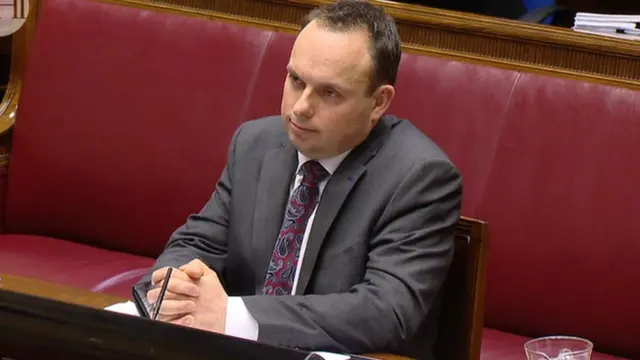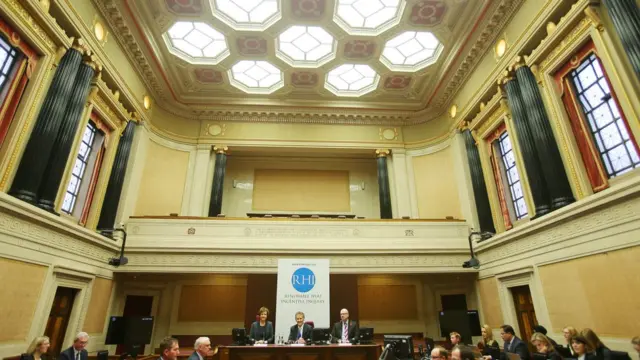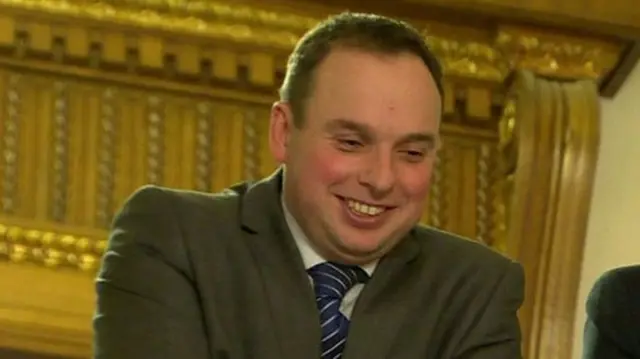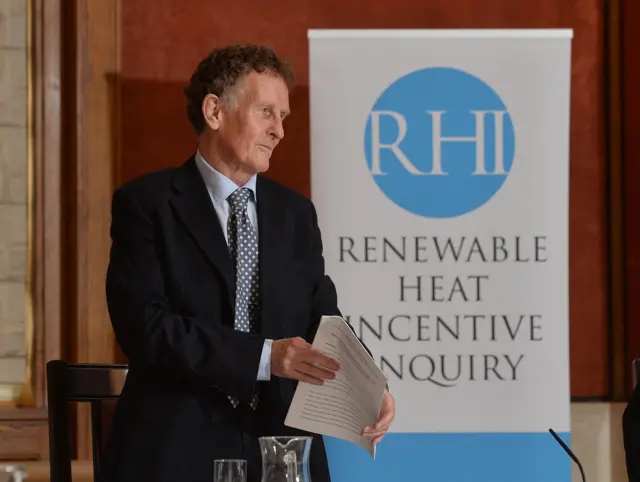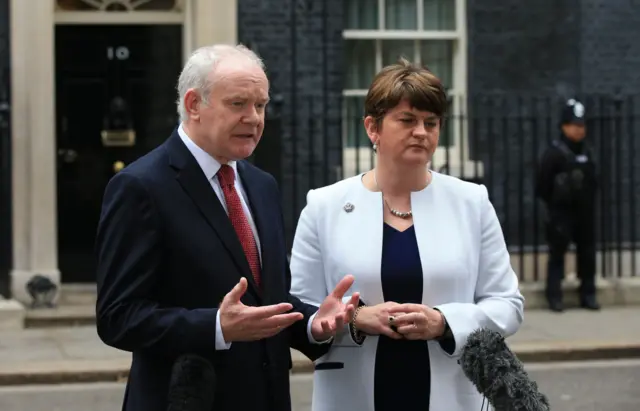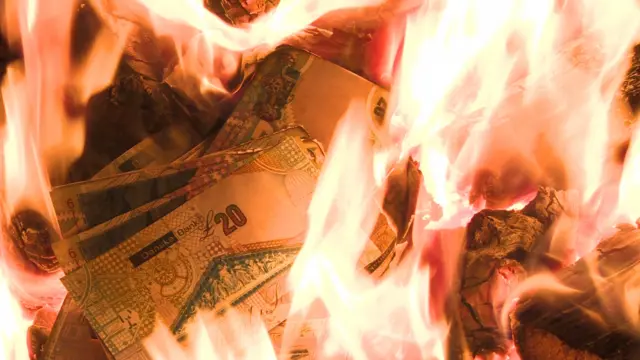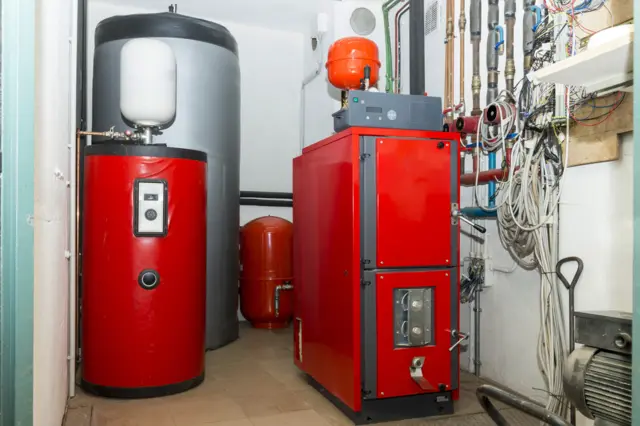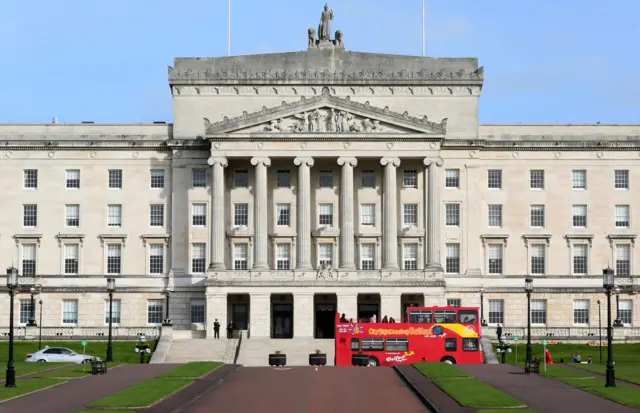'No report was discussed in detail at meeting'published at 10:34 BST 16 April 2018
Shortly before the June 2011, the consultancy firm Cambridge Economic Policy Associates (CEPA), which had been engaged by DETI to draw up a economic assessment of the options for the RHI scheme, delivered its final draft report.
Dr Crawford says he believes that "no report was discussed in detail" during the meeting involving DETI officials and the minister, during which the future of the scheme was decided.
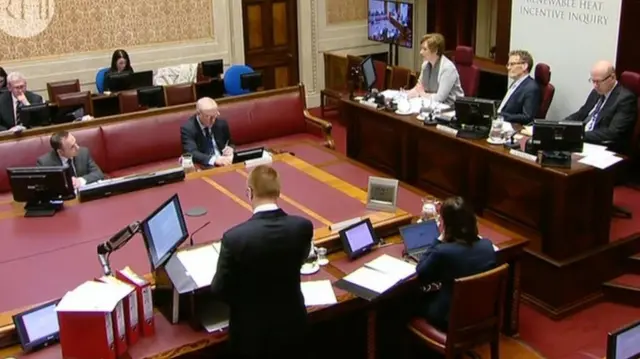 Image source, RHI Inquiry
Image source, RHI Inquiry"I don't believe any report was discussed at all outside the contents of the submission that was presented to us before the meeting", he adds.
And he says that no copy of the draft final report was left for him and the minister to consider.
"I do not believe there was any additional information brought to the meeting or discussed at the meeting to change the direction of travel that was in the submission."
